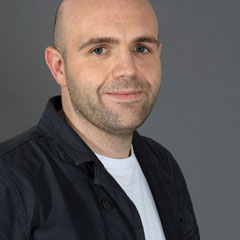Joe Tomlinson, Professor of Public Law, York Law School
Joe researches public law, with an interest in seeking to understand how public law, courts, and government organisations respond to complex societal challenges.

He is the Director of the Administrative Fairness Lab, which seeks to make frontline public service processes fairer, through building evidence and theory.
email: joe.tomlinson
Our 60-second interview with Joe:
Could you please tell us what work you do in the field of mental health?
Mental health has always been on the periphery of my research as, when government services get things wrong, there are often mental health implications. More recently, alongside colleagues in the Administrative Fairness Lab and IMRY, I have been trying to bring these dynamics to the fore and examine them. We are interested in understanding whether public sector mental health support processes are procedurally fair and also the mental health consequences of interreacting with public services such as social security.
What do you find most rewarding and inspiring in this work?
Much of the research in my field sees good public process as a virtue in its own right - which it is - but the work we are doing on mental health is allowing us to show how good (and bad) processes in the public sector can have very substantial impacts on individuals and, in turn, on wider society.
What is the most challenging or complicated aspect of this work?
We are starting with a relatively thin evidence base. This is a major challenge, but it also makes the work exciting – there is so much still to understand, and new knowledge can, hopefully, pave the way to create public service processes that promote positive mental health outcomes.
What impact do you hope your work is having - or can potentially have?
We are in the early stage of the work, but our hope for the long term is that understanding the connections between administrative fairness and mental health will allow us to theorise and test potential interventions in public processes that might improve mental health outcomes.
Could you share with us one piece of advice that you follow for your own mental health?
Running is central to my mental health. I enjoy running, but I am liable to stop when I have lots of things on. I’ve learnt that, for me at least, times when it is usually most likely that you will push aside what helps your mental health (like running) are also the times it is most important to try to make space for those things.